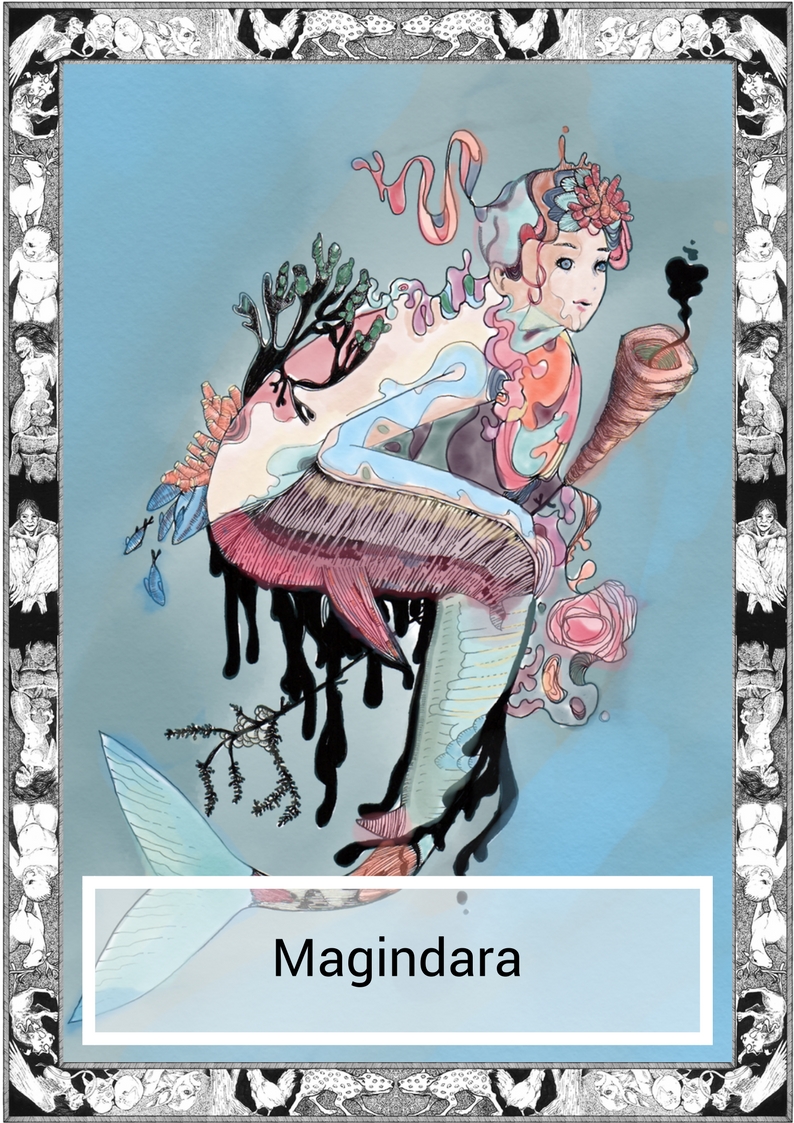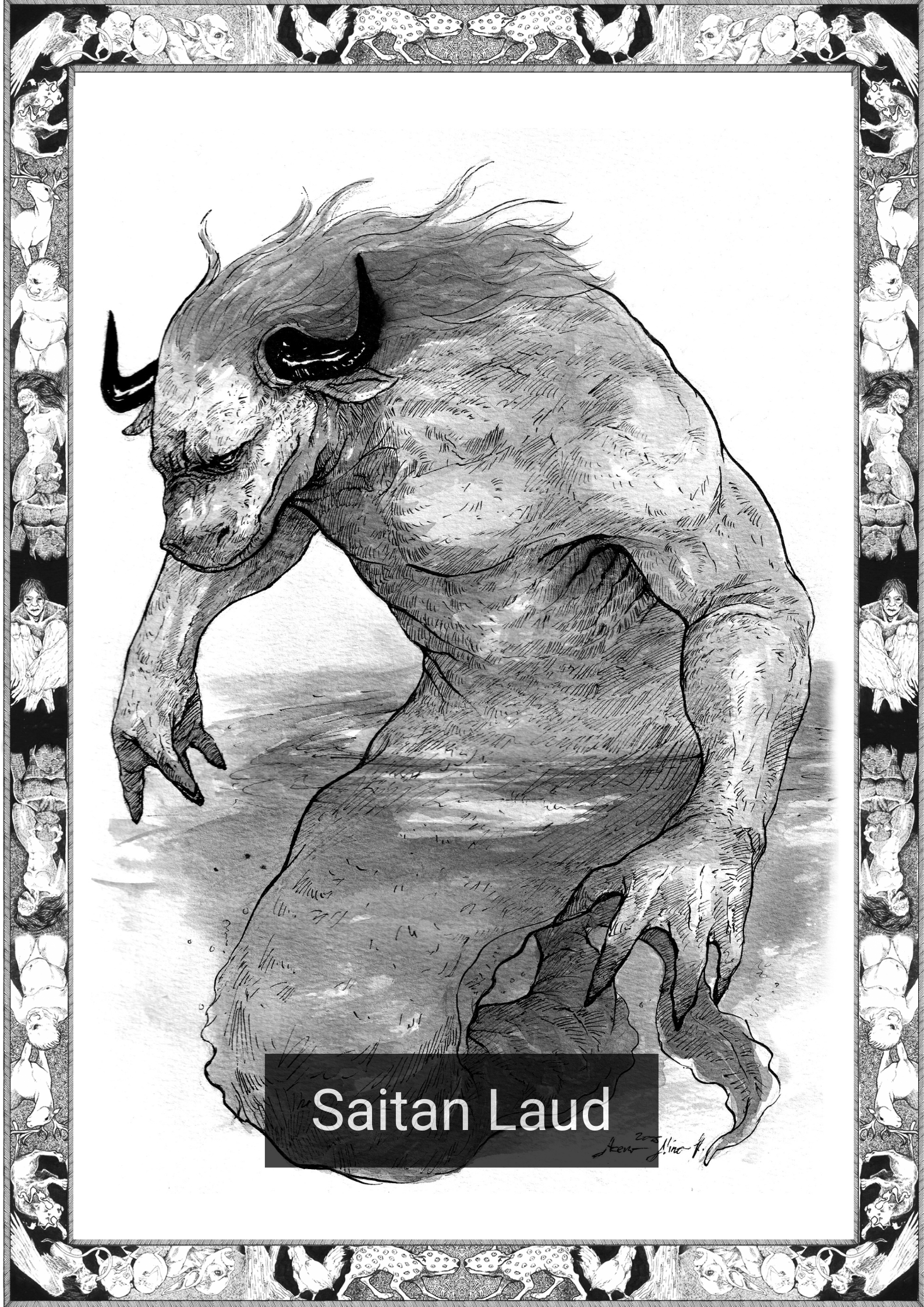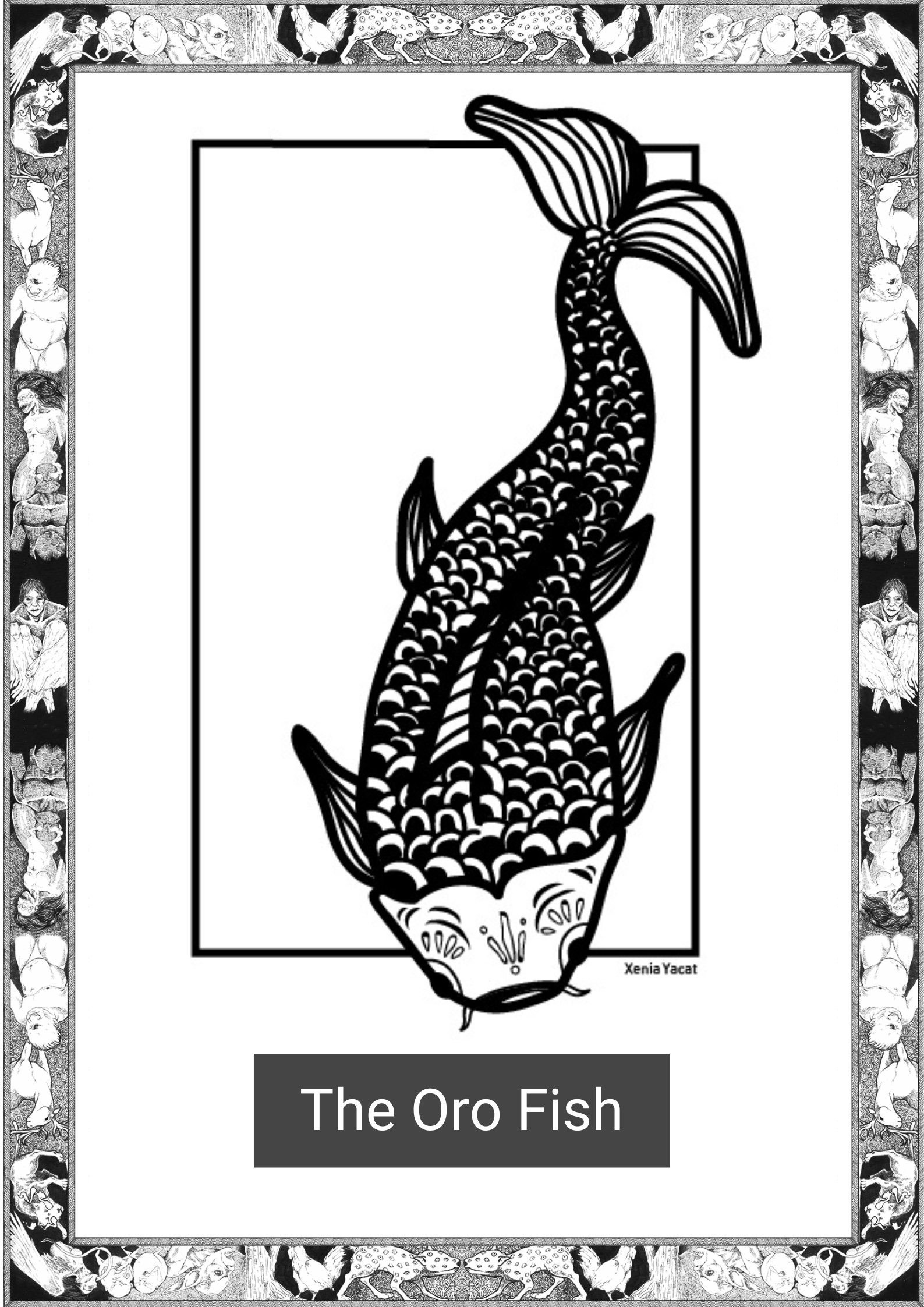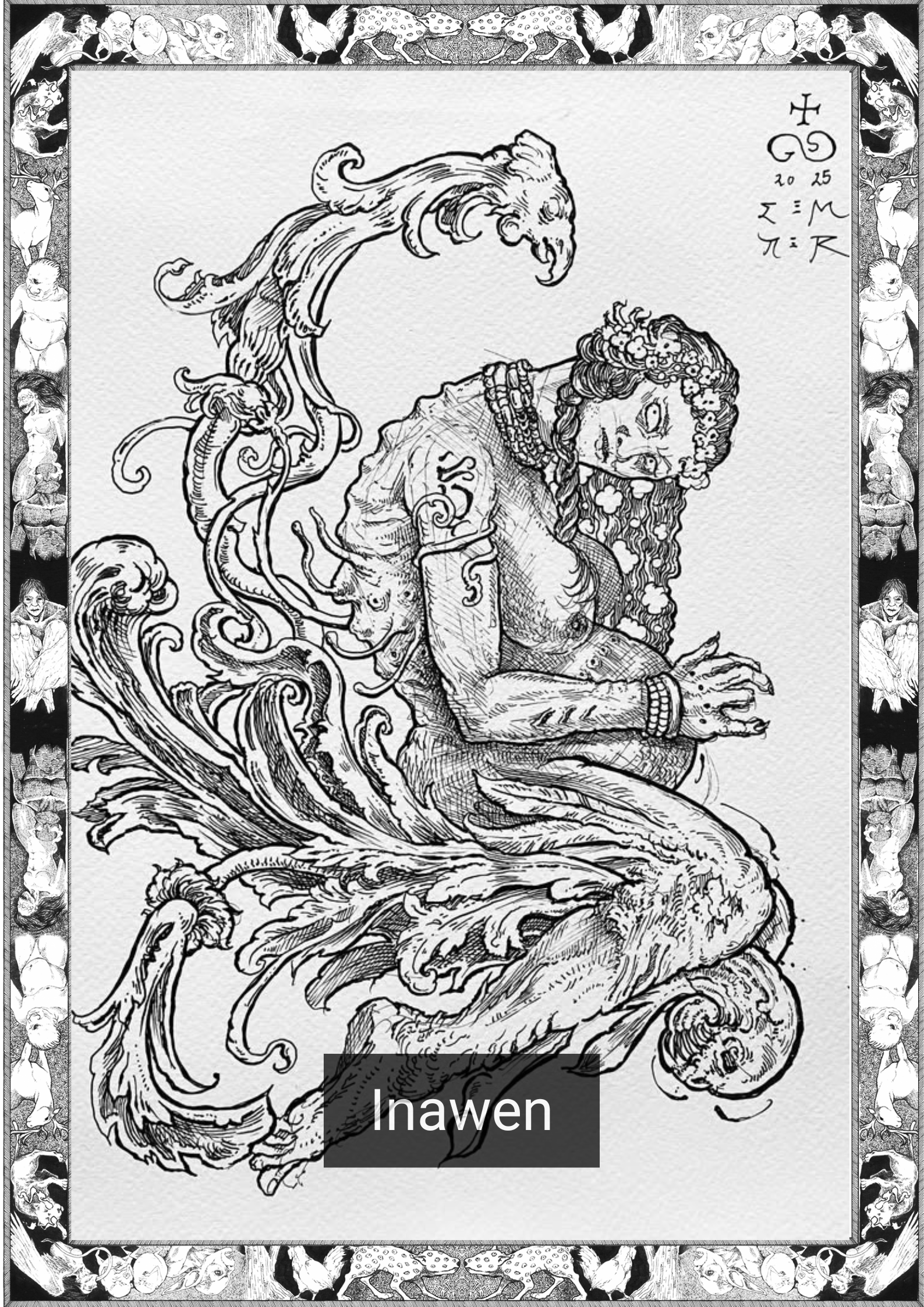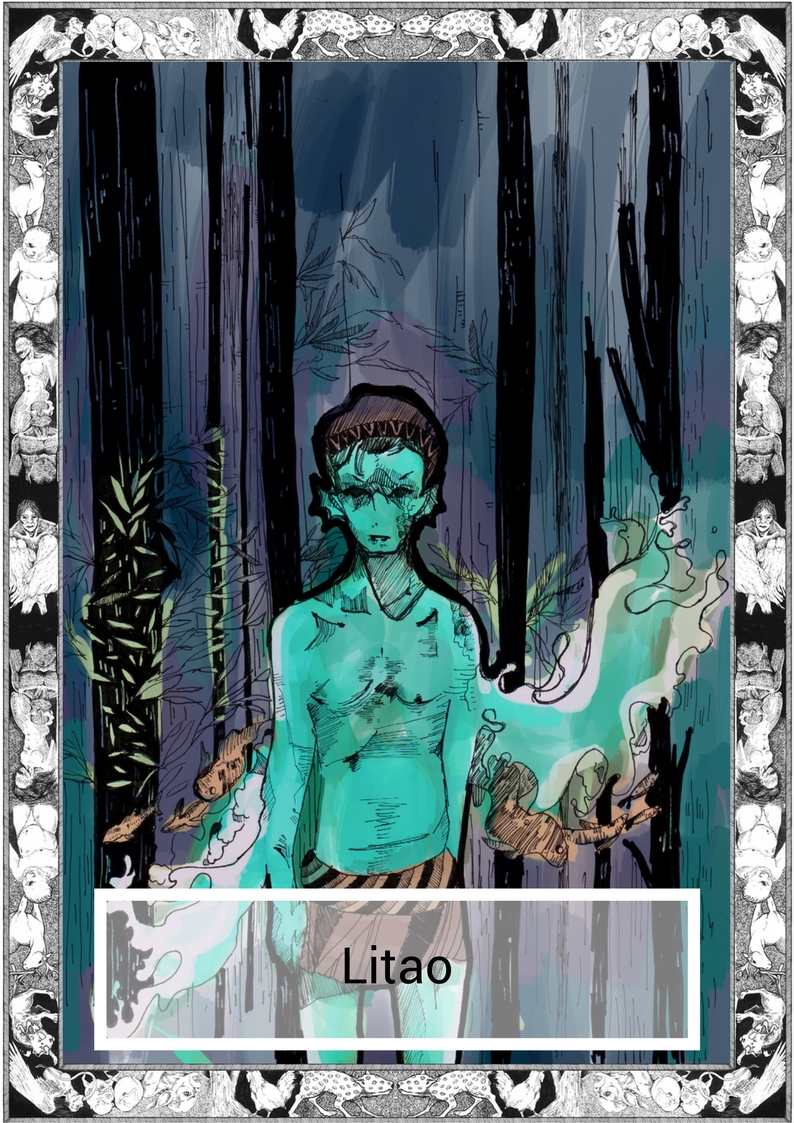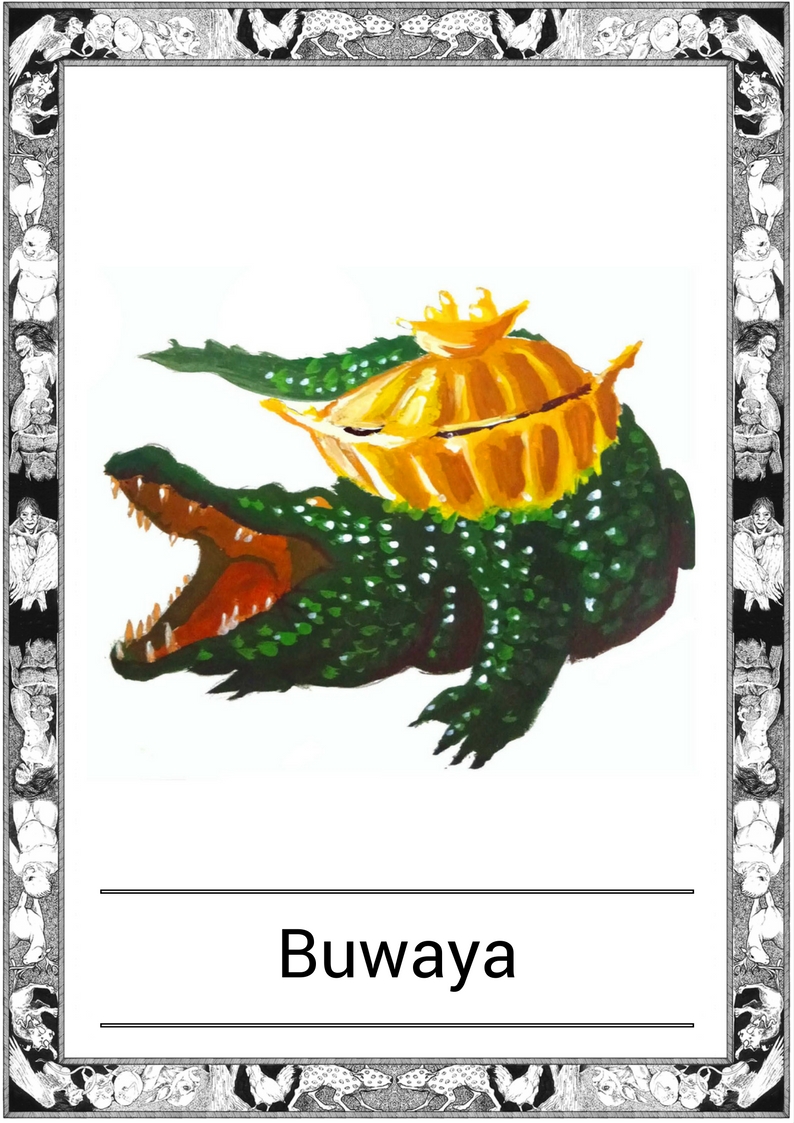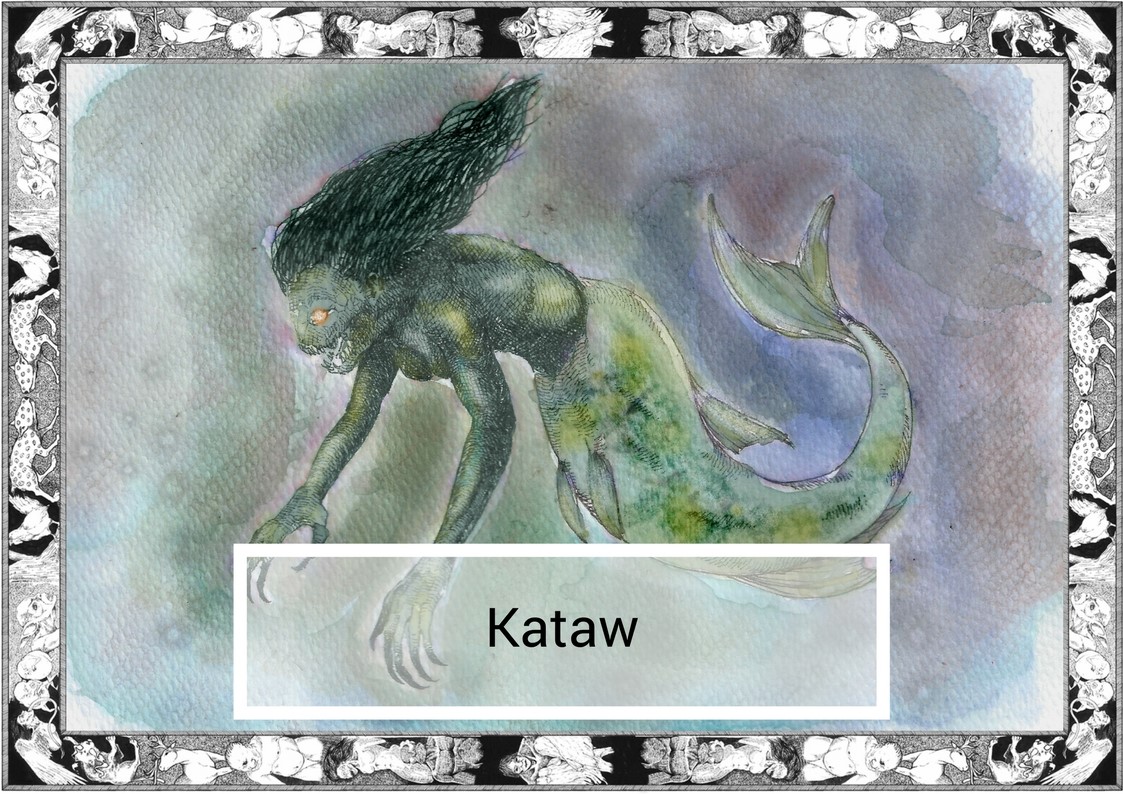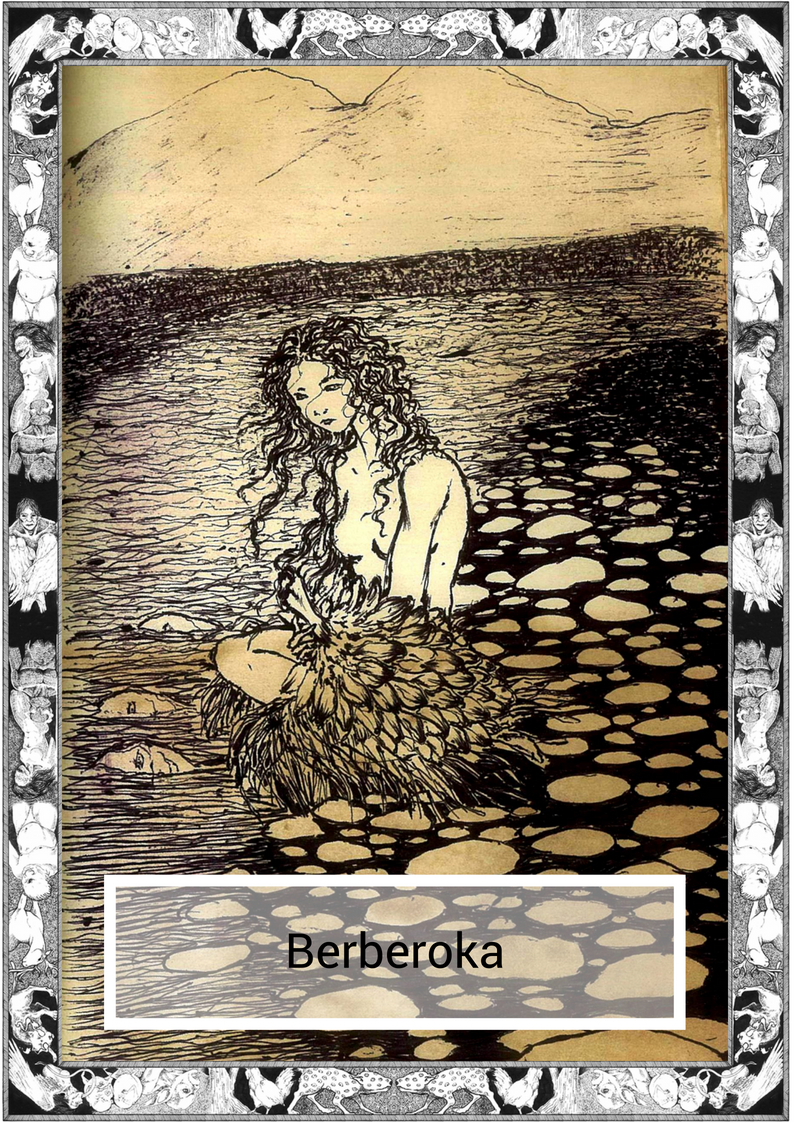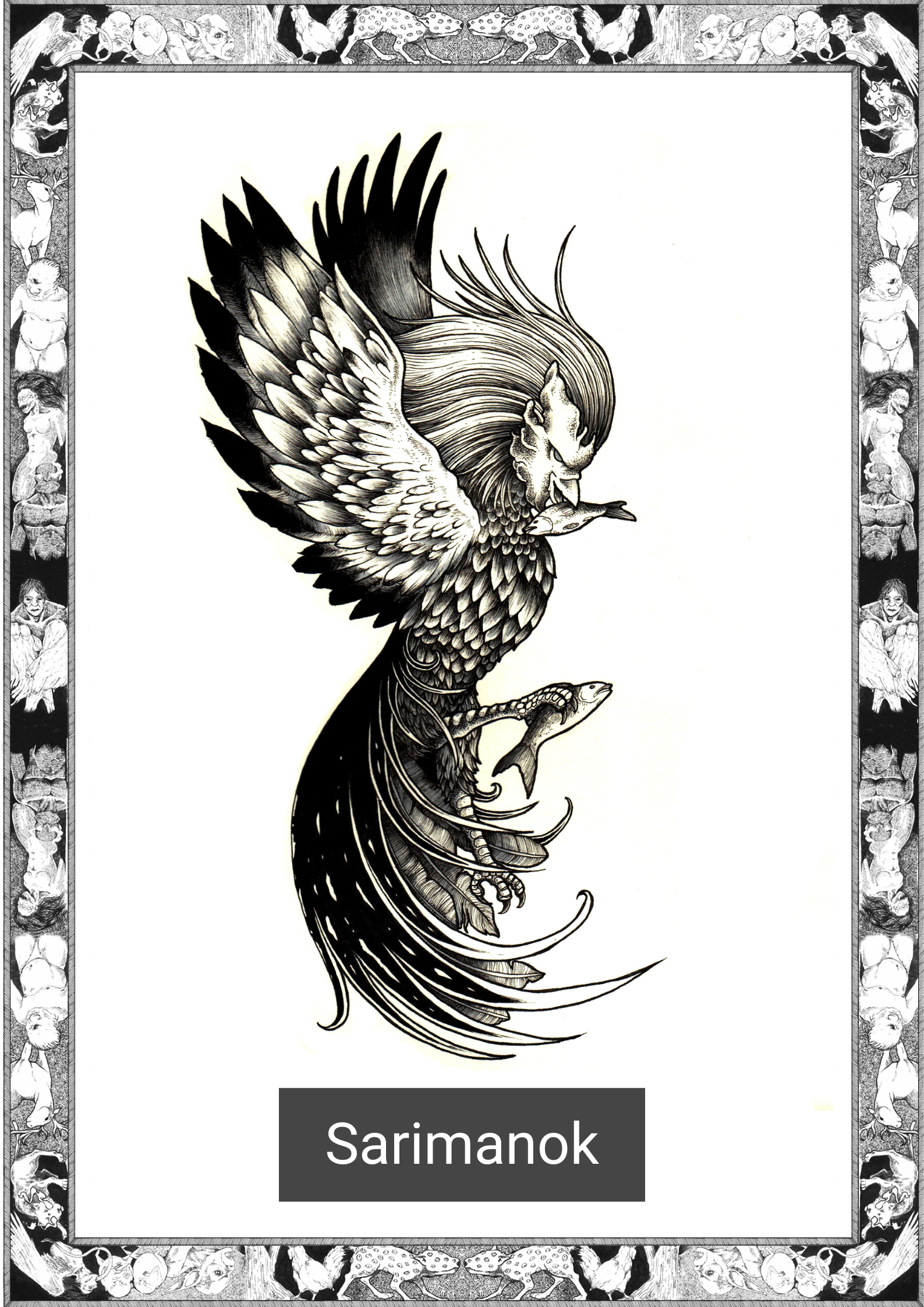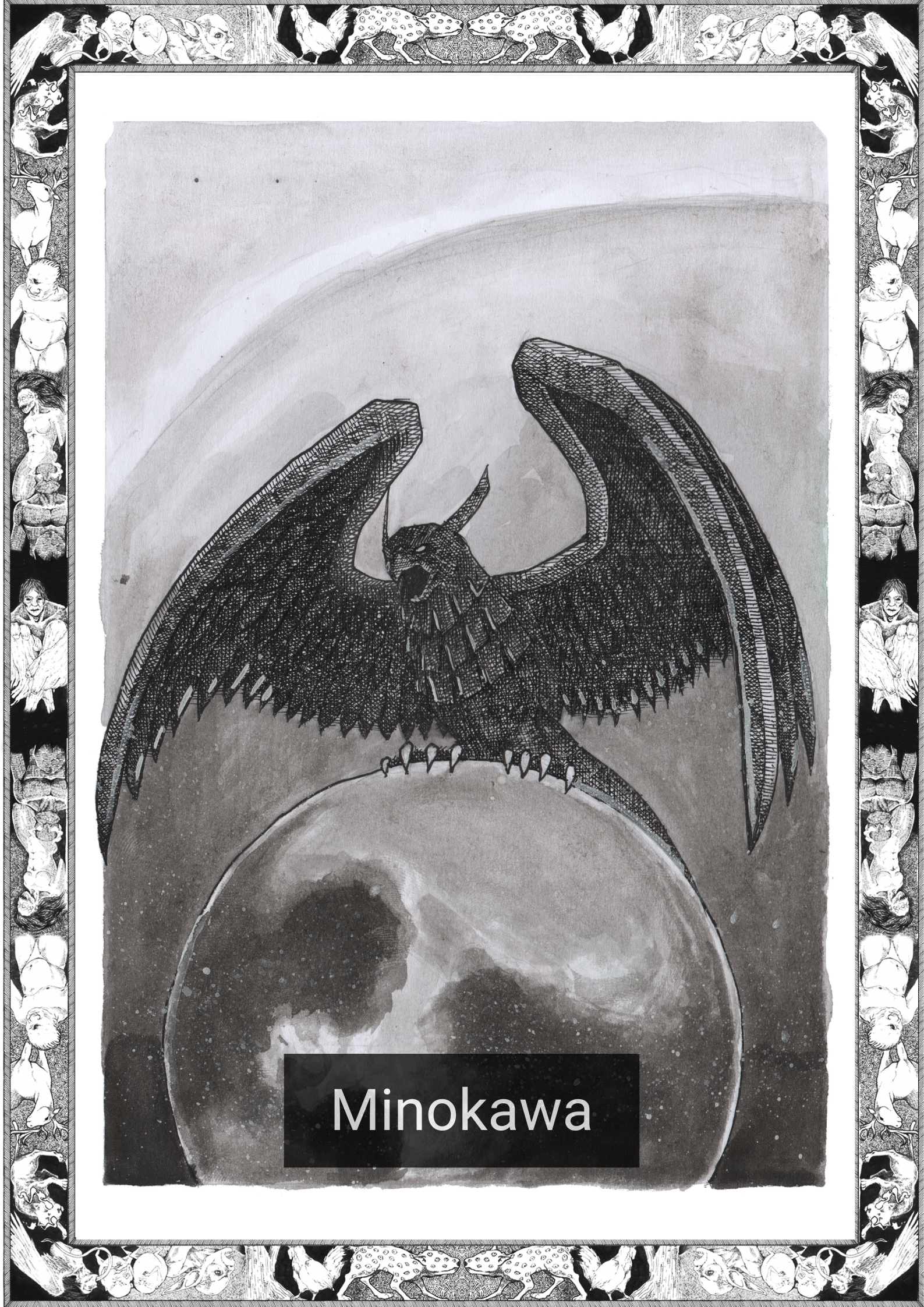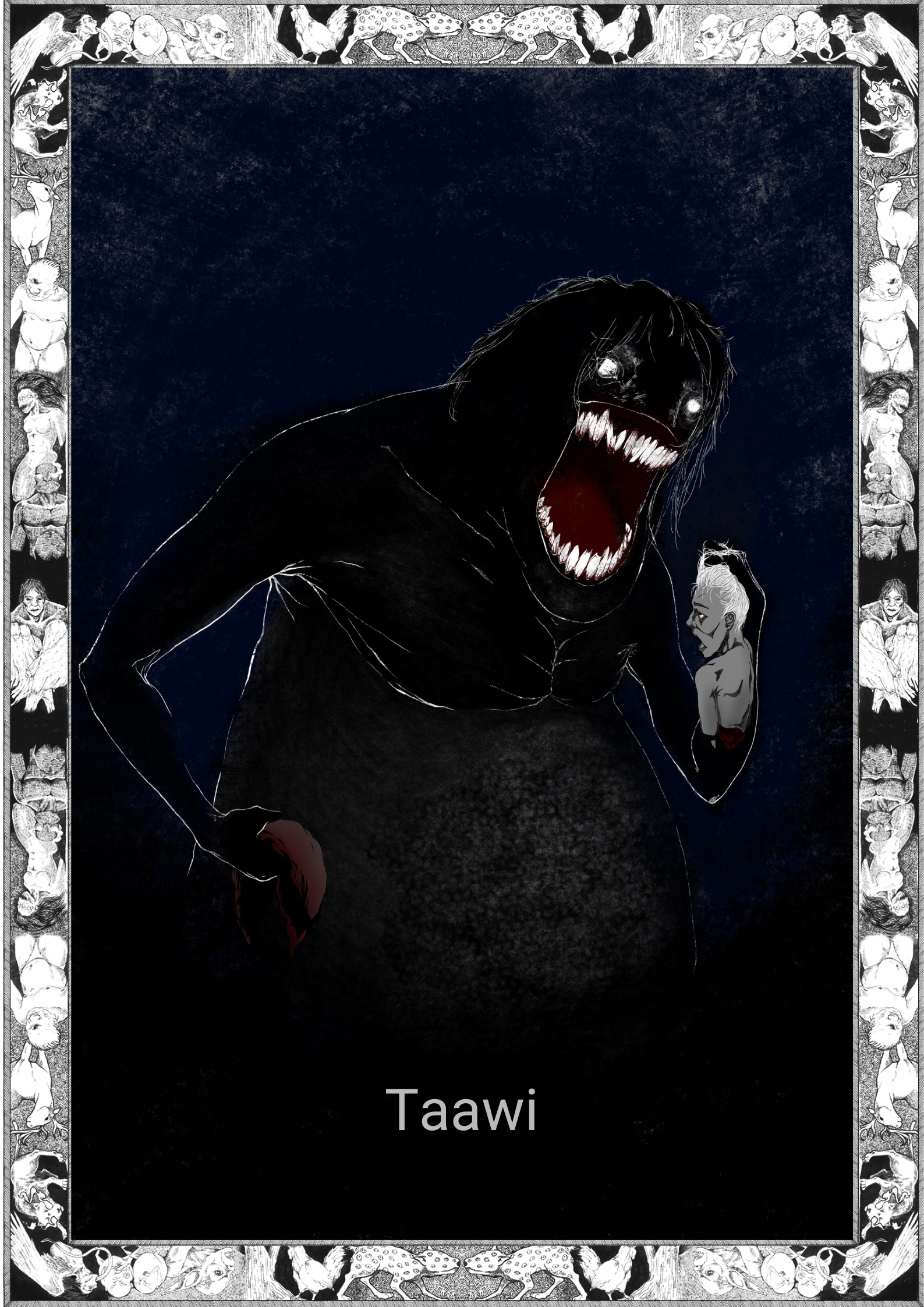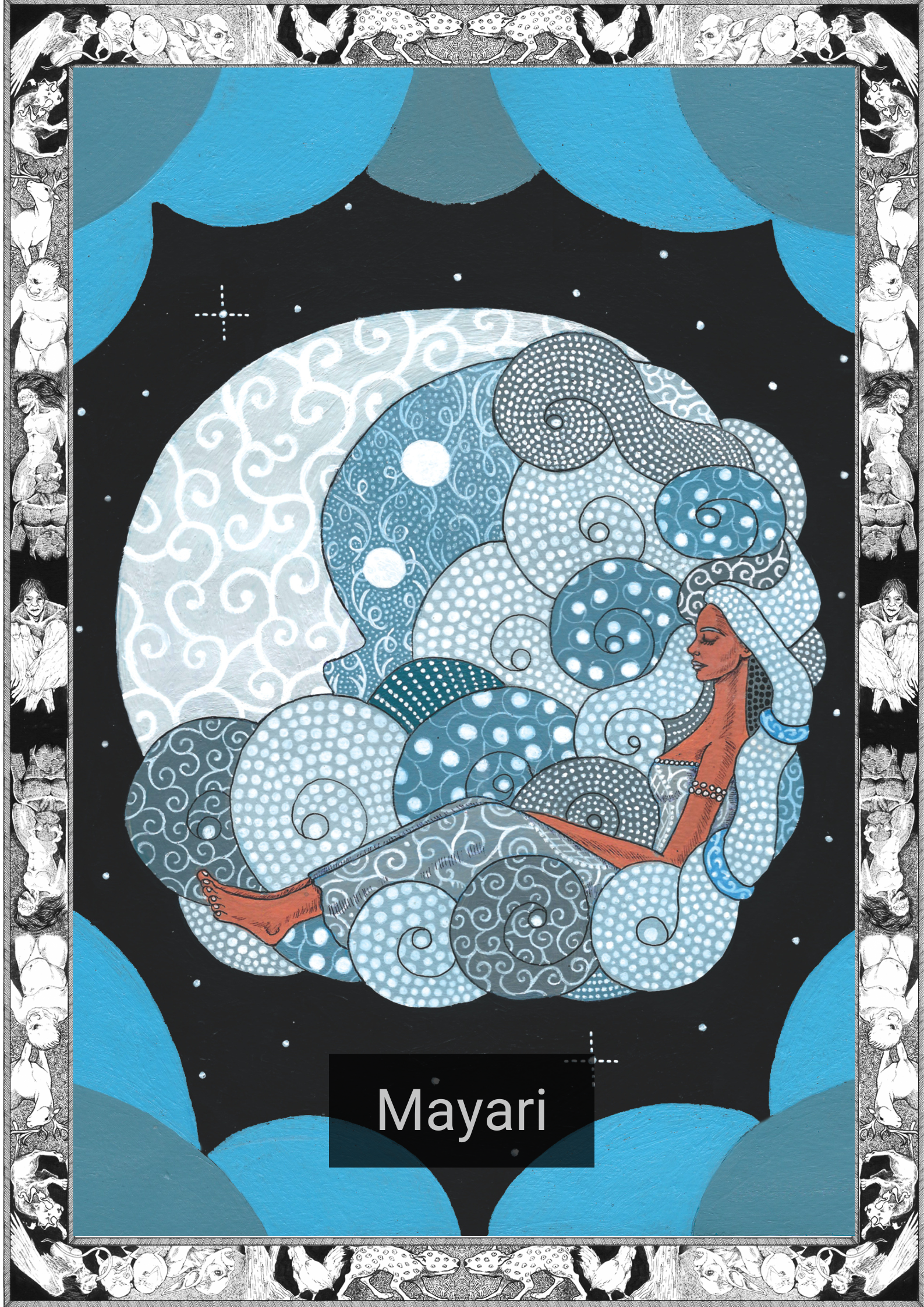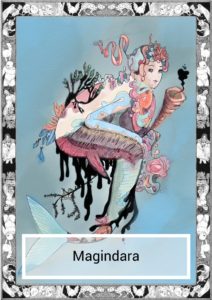
*Note this story is in Ibanag
Mapia Noka Ngamin
Nakanna na palung y ulo na minangngallu. Nikarigatan na y mattanniao ta danum ngem kitanna magimmang na masikan nga badiu. Ammu na nga makadde ira maski masikan y danna na uran. Kitadda netuttol yaya tawe tapenu malimo anna mattalo yaya nira adde noka ta adde.
Naraddam na y luwa nga nallawan ta mata na yena na sanga newakki na y Rosario. Navurungan y yena na mas netallugaring ta kararua na. Y minangngallu ay paborito na yama anna inakkakka na y ollu nga pangurugan megafu ta pangurug na nga y bebay dian na daga na.
Nakimallo y yena na tu mangurug ta mangipaliag sa, mangipaliag nira. Pinadakal na yaya tu daddamman na y aya anna nawag, ngem kitanna gininna y yena na. Kitanna noka malippawa y pattolay da ngoga ta bebay, danari nanangngal nira.
“Aswang ng dagat”- yaton I agal nira. Kadiad da tu y cancion na espiritu y neyappan da ta minangngallu tape nu malaggappan anna kanadda ira. Nakaddag yaya nu kunnasi nabbayag yaton nga kinaladdug anna nu ngatta mangurug paga laman y aru nga totolay aganne sangawe. Ammu na minangngallu danari nga istoria nu para anni ira: yaton nga gannug nga nepinta aganne ngoga y respeto anna paddayarayaw ta espiritu ira.
Awan tu inna nakua. Ragu-ragun nga nappasa y nanguli ta angngurugan na totolay nu sinni aranniad da nga paki offunan. Awan ngana tu mangitavvung ta bebay onu makimallo ta palung. Yaya laman ngana. Yaya y ultimo ta mawawawan nga angngurugan.
Makkafi-kafi y lima-lima na. Massuku galaman ngana y baggi na ta awan tu immang na sikan na palung anna uran. Niraddam na y yena na anna pinasikan na y nono na. Nevuya na y ultimo nga pakimallo nage na nadanna ta danum:
Y danum ituttol na ta balê
Mammakatalo nga niko
O espiritu na badiu anna danum
Y zibbo mabbalin tu nawag
I palung makkalma
Egga nga noka ta bebay
Mapia noka ngamin.
=—————————————————-=
English Version
“They will save me.”
The waves crash over the fisherman’s head. He tries to tread water but the storm will not let up. Thousands upon millions of raindrops batter the ocean’s shapeless form, but he knows they will pass. They did not lead him here to drown and he will trust in them until the end of his days.
He remembers the tears in his mother’s eyes when he tossed her rosary aside. She was scared for him, but more concerned for his soul. The fisherman was his father’s son and carried on believing in the old ways because the water was in his blood.
His mother begged him to trust his savior, their savior. The one she had raised him to remember in love and light, but he couldn’t listen to her. She could never understand the life they had at sea, the guardians that protected them.
“Aswang ng Dagat” – that’s what they called them. They say that the spirits lured fishermen into the water with their songs to drown and eat them. It still surprised him how long that lie had lasted and how many people still believed in it. The fishermen knew those stories for what they were: a brush used to paint over the centuries of respect and admiration of the spirits.
There was nothing he could do though. The years had changed what people turned to in their times of need. There were no more offerings by the sea, or prayers to the waves. What was left was him. The last son of a dying belief.
The fisherman’s arms are getting weak now. His body is finally surrendering to the endless onslaught of the waves and the rain. He thinks back to his mother and stays firm in his conviction. His lips release one final prayer before his head goes beneath the waves:
The water will lead me home
I will trust in you
O spirits of storm and sea
The darkness will turn into light
The waves will calm
I will be with the sea
————————–
*The Ibanag language (also Ybanag or Ibanak) is spoken by up to 500,000 speakers, most particularly by the Ibanag people, in the Philippines, in the northeastern provinces of Isabela and Cagayan, especially in Tuguegarao, Solana, Abulug, Cabagan, and Ilagan and with overseas immigrants in countries located in the Middle East, United Kingdom and the United States. Most of the speakers can also speak Ilocano, the lingua franca of northern Luzon island. The name Ibanag comes from the prefix “I” which means “people of”, and “bannag”, meaning river. It is closely related to Gaddang, Itawis, Agta, Atta, Yogad, Isneg, and Malaweg.
Written by Karl Gaverza
Translation by Gretheline Ramos Bolandrina
Copyright © Karl Gaverza
Translation Copyright © Gretheline Ramos Bolandrina
Inspired by the Magindara entry in Bikol Beliefs and Folkways: A Showcase of Tradition. Nasayao 2010.
Magindara Illustration by emirajuju
IG: https://www.instagram.com/
Watercolor by Mykie Concepcion
Tumblr: http://
